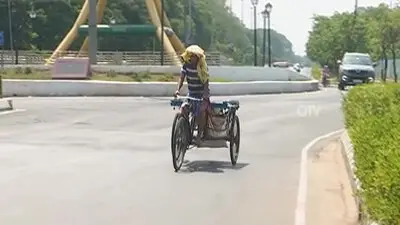Recommended Stories
"The personal liberty of a person is sacrosanct and state authority cannot be permitted to take it away without following the procedure prescribed by law, otherwise it would be violative of the fundamental rights guaranteed under articles 21 and 22 of the constitution," the apex court said.
While Article 21 grants right to life and liberty subject to reasonable restrictions, Article 22 protects a person against arrest and detention in certain cases.
A bench of justices B S Chauhan and Dipak Misra passed the ruling upholding Manipur native Huidrom Konungjao Singh`s appeal against the state government`s decision to invoke the provisions of preventive detention under the National Security Act (NSA) against his son Huidrom Shantikumar, lodged in judicial custody in a murder case.
The bench said for invoking the provisions of preventive detention against a jailed person, the detaining authority has to satisfy the court if it was fully aware that the detune was actually in custody.
The detaining authority also has to satisfy that it had reliable material on the basis of which it had reasons to believe that there was real possibility of the arrested person`s getting bail and that after his release, he would indulge in activities, prejudicial to public order, the apex court said.
It added the authority has to justify its preventive order on these two counts.
"In case either of these facts does not exist the detention order would stand vitiated," said Justice Chauhan writing the judgement for the bench. .
Huidrom Shantikumar was arrested on June 19, 2011 by the Imphal Police for his alleged role in a murder case and for possessing an illegal weapon.
He was also allegedly involved in extorting money and giving shelter to underground members of unlawful association, namely, Kangleipak Communist Party.
The detention order against Shantikumar was passed on June 30, 2011 by Imphal (West) district magistrate, who said some accused in similar cases had been enlarged on bail, the detune too in this case might get bail, after which he would indulge in activities prejudicial to public order.
The Guwhati High Court dismissed Shantikumar`s petition which challenged his son`s detention order. He came to the apex court with an habeas corpus petition in the apex court.
The apex court said though the detaining authority has the right to detain a person in jail on certain apprehension, the power has to be exercised in a judicious manner.
The bench felt in the present case the apprehension of the detaining authority was unfounded as neither the co-accused had been enlarged on bail nor has the detune moved any bail.
"Merely, because somebody else in similar cases had been granted bail, there could be no presumption that in the instant case, had the detune applied for bail, he could have been released on bail.
"Thus, as the detune in the instant case has not moved the bail application and no other co-accused, if any, had been enlarged on bail, resorting to the provisions of act was not permissible," the apex court said.












